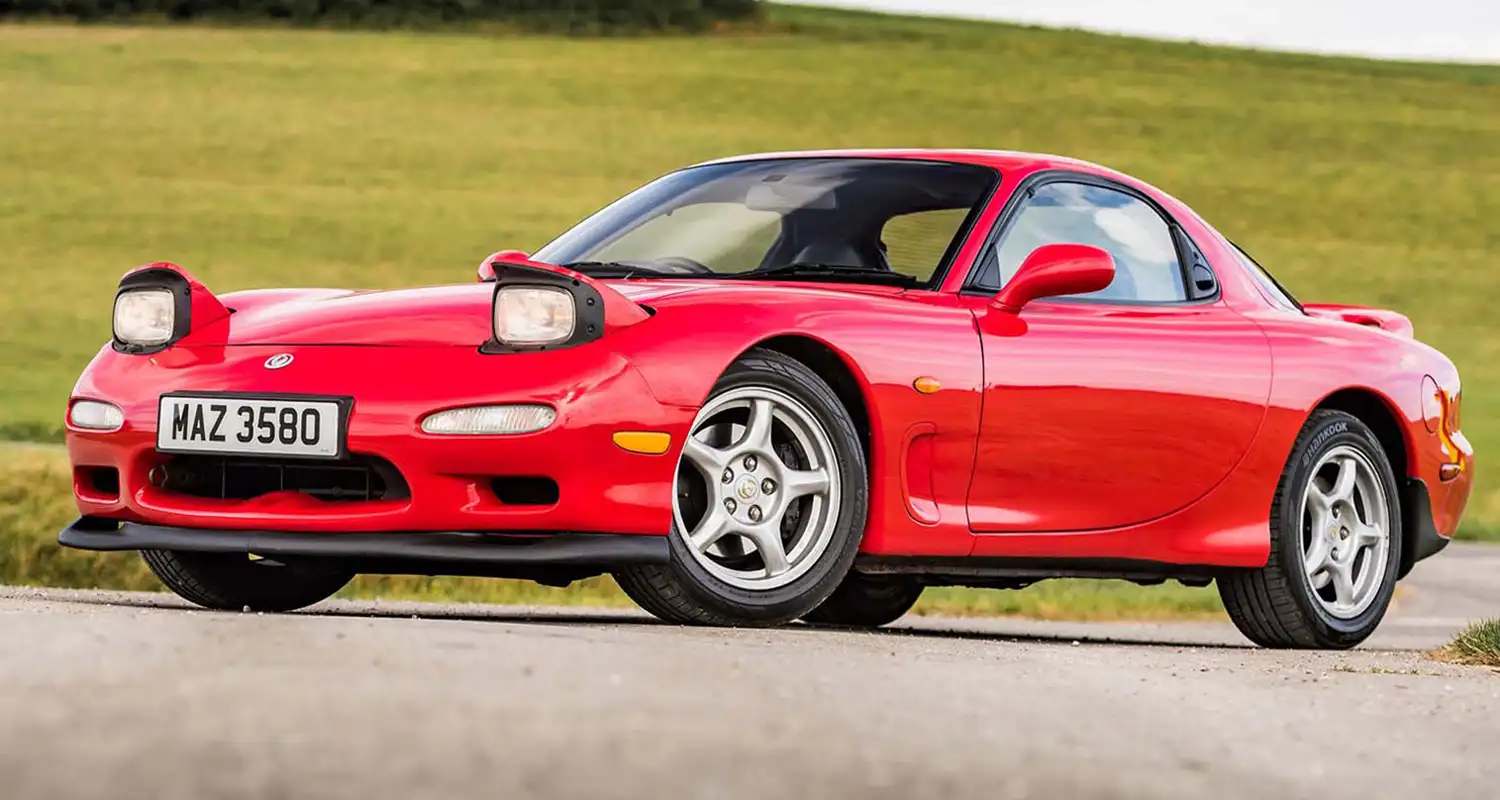
The Mazda RX-7 (3rd generation), also known as the FD RX-7, stands as one of the most iconic sports cars in automotive history. Launched in 1992, the FD RX-7 captivated enthusiasts worldwide with its lightweight design, rotary engine, and timeless aesthetics, securing its place as a performance legend.
Sleek Design and Aerodynamics
The 3rd-gen RX-7 was a departure from the boxier lines of its predecessors, featuring a smooth, flowing silhouette that exuded speed and elegance. Mazda focused heavily on reducing drag, achieving an aerodynamic body with a low profile, pop-up headlights, and a distinctive rounded rear. The lightweight construction, aided by extensive use of aluminum, contributed to its nimble handling and made it one of the best-handling sports cars of its time.
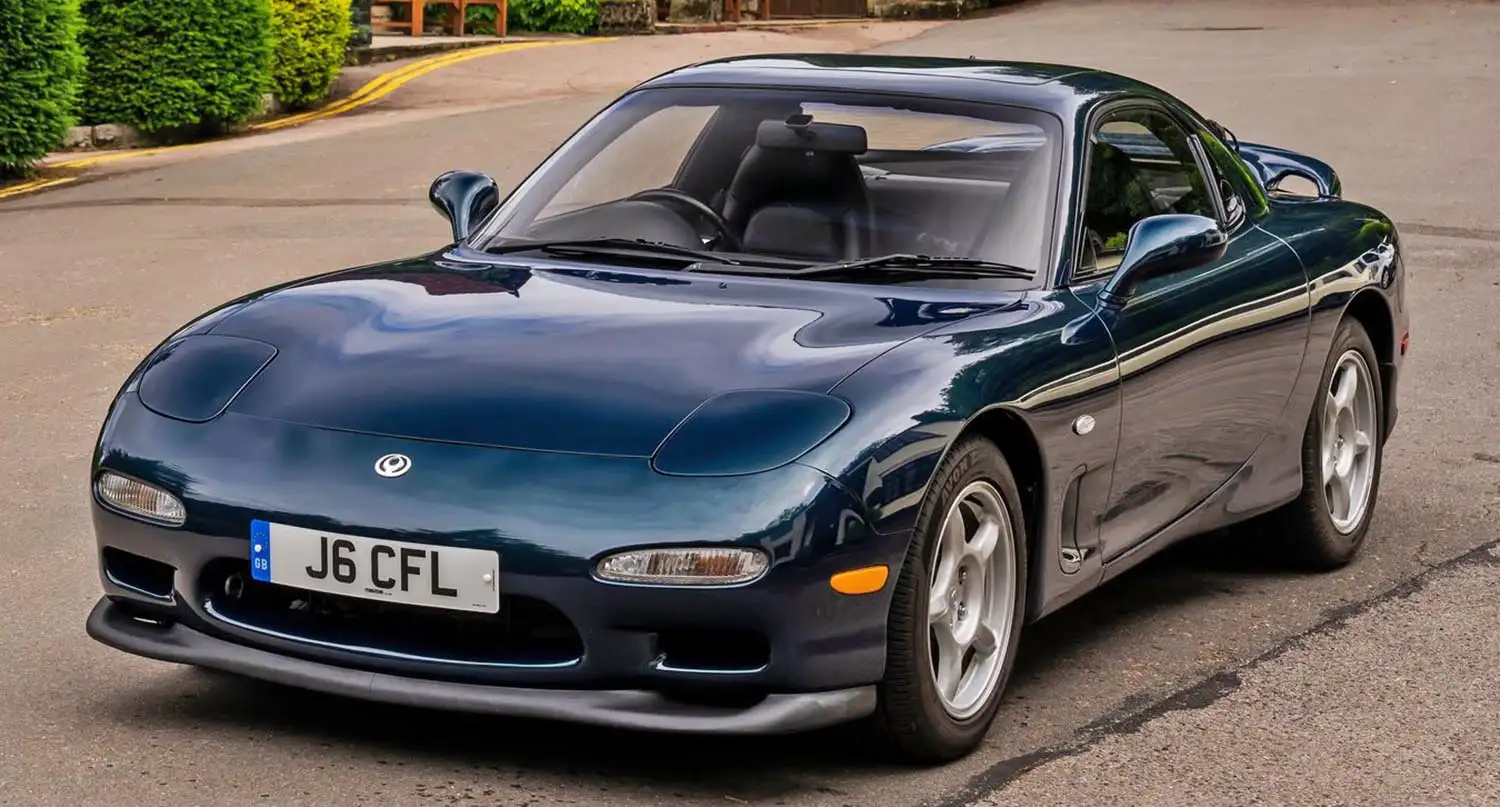
The Heart of the Beast: 13B-REW Rotary Engine
At the core of the FD RX-7 was the innovative 13B-REW engine, a twin-rotor, twin-turbocharged rotary unit that delivered exhilarating power in a compact package. Producing 252 horsepower (255 PS) in its initial version, this engine allowed the RX-7 to accelerate from 0 to 60 mph (0 to 100 km/h) in just 5.3 seconds. The sequential turbocharging system—where one turbo operates at low revs and the second kicks in at higher RPMs—ensured smooth and relentless power delivery, making it a joy to drive on both track and street.
Lightweight and Precision Handling
Mazda’s engineers focused on achieving the perfect balance between power and agility. With a near 50:50 weight distribution and weighing in at just around 1,300 kg (2,866 lbs), the RX-7 delivered exceptional handling. Its responsive steering, double-wishbone suspension, and low center of gravity made it a true driver’s car, capable of tackling tight corners with ease.
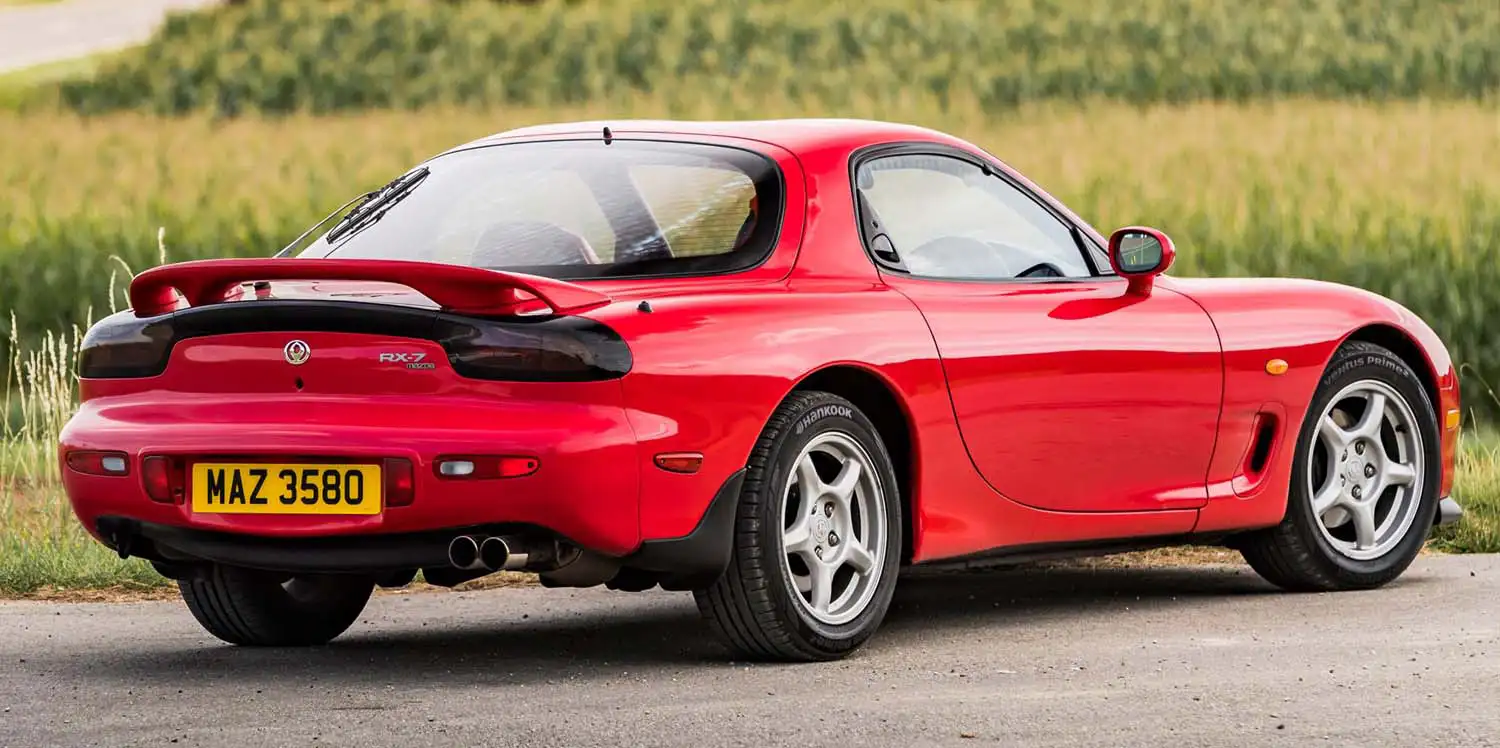
Technological Innovation
The RX-7 FD wasn’t just about raw performance; it also introduced advanced technology. The car featured ABS (anti-lock braking system) and available traction control, ensuring that drivers could harness the power safely. The cockpit was driver-focused, with a minimalistic yet functional design, featuring sports seats, a three-spoke steering wheel, and gauges that provided vital information at a glance.
A Cult Classic in Pop Culture
The 3rd-gen RX-7 gained a strong following not only in automotive circles but also in pop culture. Its appearances in movies like The Fast and the Furious and video games such as Gran Turismo cemented its status as a beloved icon. Enthusiasts praised its performance, modifiability, and unique rotary engine sound, further boosting its appeal among car tuners and collectors alike.
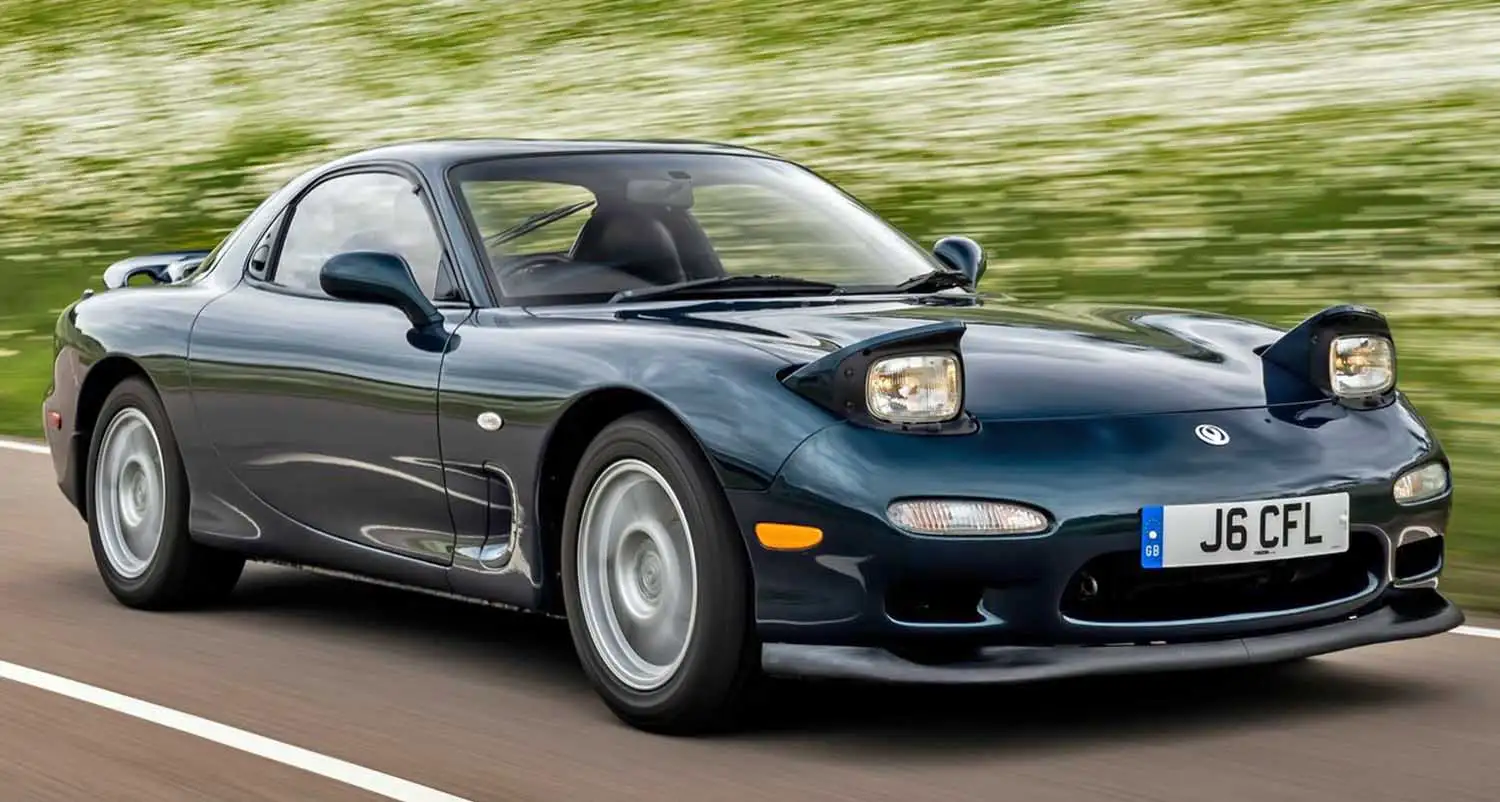
Production and Legacy
The Mazda RX-7 FD was produced from 1992 to 2002, with various updates and limited-edition models, such as the lightweight Spirit R, introduced towards the end of production. While its rotary engine design had its quirks, including higher fuel consumption and the need for meticulous maintenance, the RX-7’s exhilarating driving experience made it a favorite among purists.
Today, the 3rd-gen RX-7 remains a highly sought-after car for enthusiasts and collectors. Its combination of cutting-edge engineering, rotary innovation, and sleek design has ensured that it is remembered as one of the finest sports cars of the 1990s.
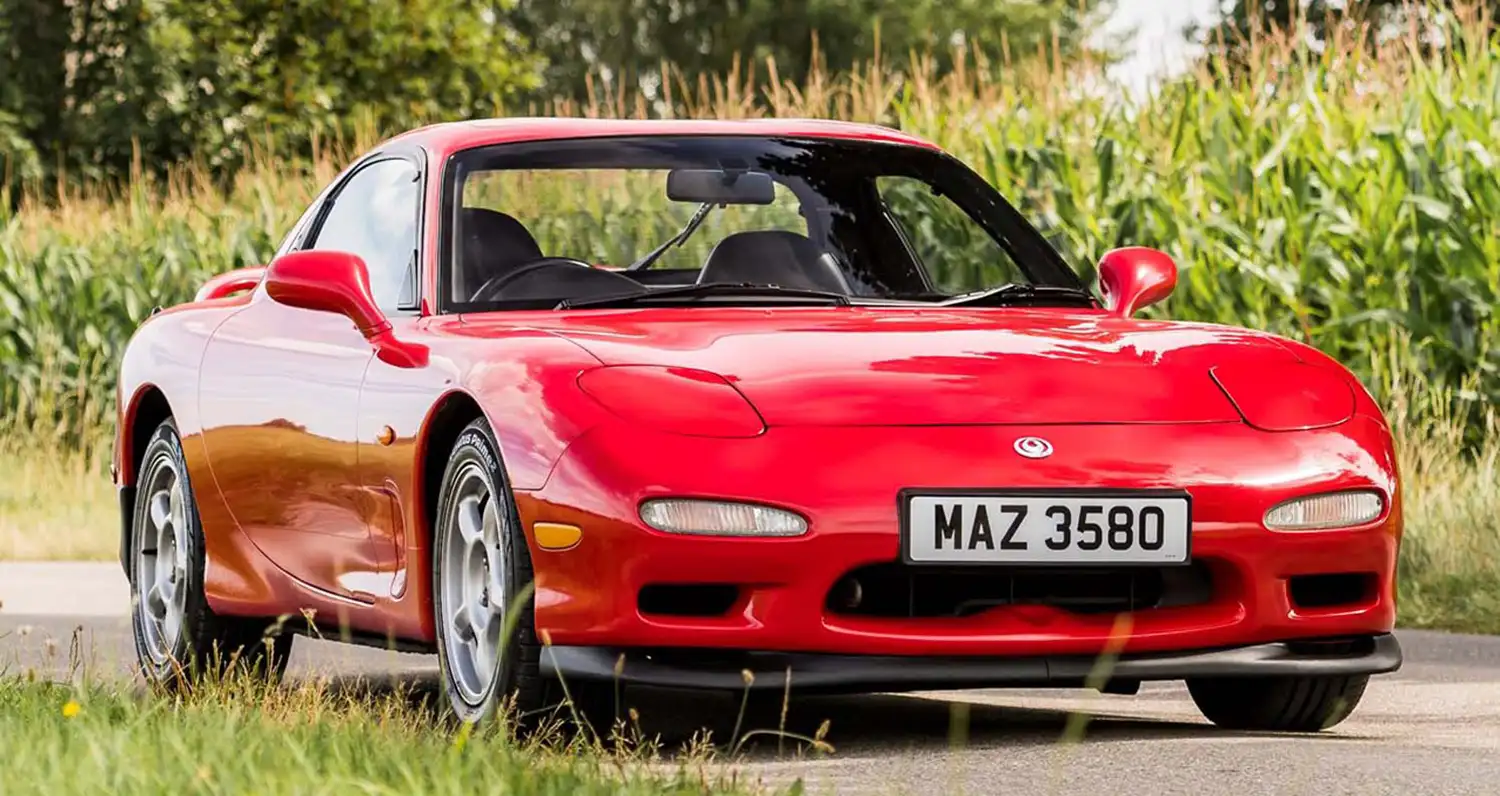
Mazda RX-7 (3rd Gen) Specifications by Variant
- Base Model (RX-7 Type R)
- Engine: 1.3L twin-rotor 13B-RS rotary engine
- Power: 255 hp (260 PS) at 6,500 rpm
- Torque: 217 lb-ft (295 Nm) at 5,000 rpm
- Transmission: 5-speed manual
- 0-60 mph: 5.5 seconds
- Top Speed: 155 mph (250 km/h)
- Weight: 2,800 lbs (1,270 kg)
- Dimensions:
- Length: 4,290 mm (169.7 in)
- Width: 1,780 mm (70.3 in)
- Height: 1,240 mm (48.8 in)
- Brakes: Ventilated disc brakes front and rear
- Suspension: Independent double-wishbone front and rear
- RX-7 Type RZ
- Engine: 1.3L twin-rotor 13B-RS rotary engine
- Power: 276 hp (280 PS) at 6,500 rpm
- Torque: 231 lb-ft (310 Nm) at 5,000 rpm
- Transmission: 5-speed manual
- 0-60 mph: 5.2 seconds
- Top Speed: 155 mph (250 km/h)
- Weight: 2,750 lbs (1,247 kg)
- Dimensions:
- Length: 4,290 mm (169.7 in)
- Width: 1,780 mm (70.3 in)
- Height: 1,240 mm (48.8 in)
- Brakes: Upgraded ventilated disc brakes front and rear
- Suspension: Independent double-wishbone front and rear, upgraded components
- RX-7 Type R1
- Engine: 1.3L twin-rotor 13B-RS rotary engine
- Power: 276 hp (280 PS) at 6,500 rpm
- Torque: 231 lb-ft (310 Nm) at 5,000 rpm
- Transmission: 5-speed manual
- 0-60 mph: 5.1 seconds
- Top Speed: 155 mph (250 km/h)
- Weight: 2,700 lbs (1,225 kg)
- Dimensions:
- Length: 4,290 mm (169.7 in)
- Width: 1,780 mm (70.3 in)
- Height: 1,240 mm (48.8 in)
- Brakes: High-performance ventilated disc brakes front and rear
- Suspension: Enhanced independent double-wishbone front and rear
- RX-7 Spirit R
- Engine: 1.3L twin-rotor 13B-REW rotary engine
- Power: 276 hp (280 PS) at 6,500 rpm
- Torque: 231 lb-ft (310 Nm) at 5,000 rpm
- Transmission: 6-speed manual (later models)
- 0-60 mph: 5.0 seconds
- Top Speed: 155 mph (250 km/h)
- Weight: 2,680 lbs (1,215 kg)
- Dimensions:
- Length: 4,290 mm (169.7 in)
- Width: 1,780 mm (70.3 in)
- Height: 1,240 mm (48.8 in)
- Brakes: High-performance ventilated disc brakes front and rear
- Suspension: Upgraded independent double-wishbone front and rear, refined tuning
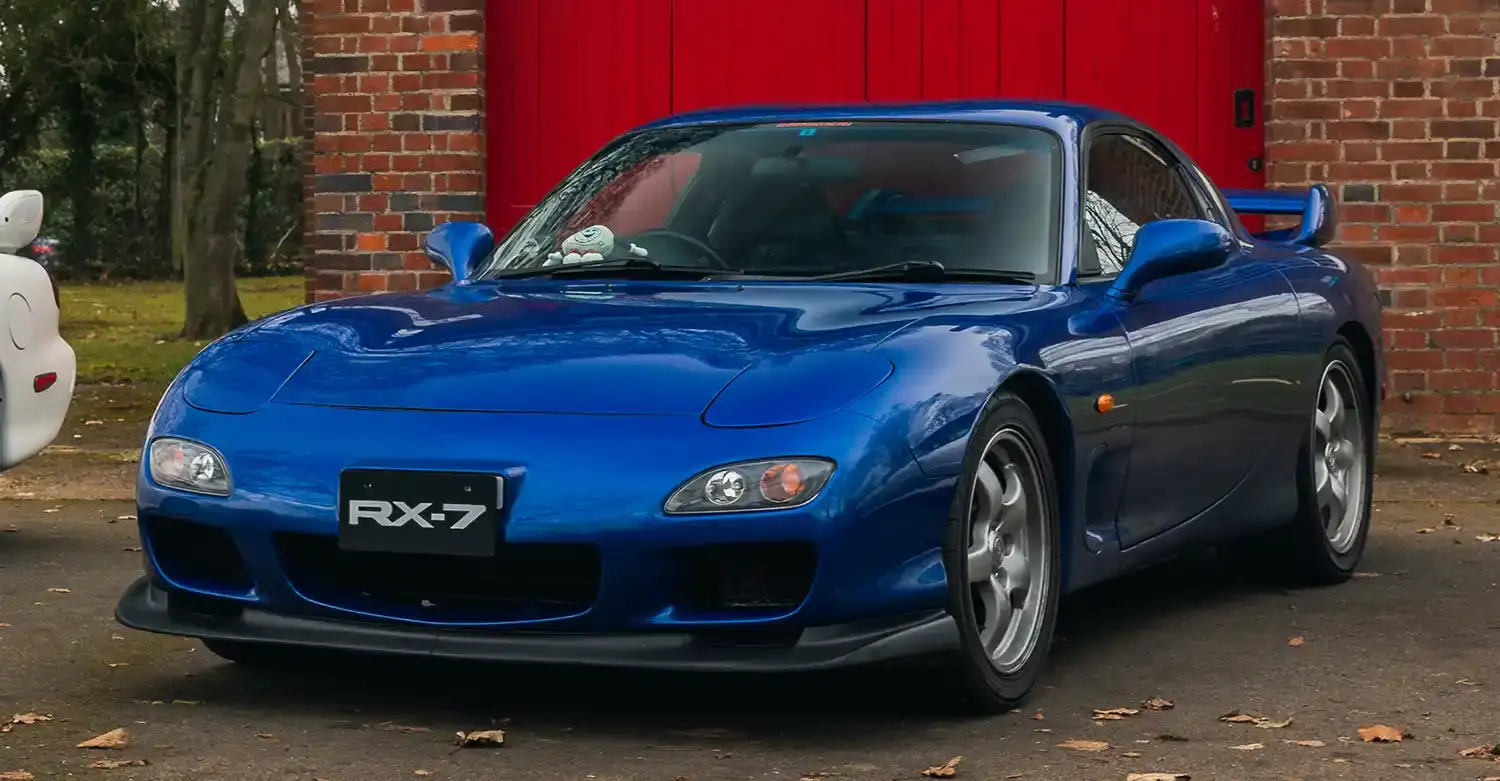
Mazda RX-7 (3rd Gen) Timeline
- 1989: Introduction of the RX-7 (3rd Gen)
- 1991: Launch of the RX-7 Type R
- 1992: Release of the RX-7 Type RZ
- 1993: Debut of the RX-7 Type R1
- 1994: Limited-edition RX-7 Spirit R
- 1995: RX-7 Type R and Type RZ updated
- 1996: Introduction of the RX-7 Type E
- 1998: RX-7 Type R and Type RZ refreshed
- 1999: Final updates to RX-7 lineup
- 2002: End of RX-7 production in Japan
The Mazda RX-7 FD embodies Mazda’s passion for creating unique, high-performance sports cars. With its revolutionary rotary engine, lightweight design, and thrilling driving dynamics, it continues to be a symbol of Japanese automotive engineering at its best. For those lucky enough to own or drive one, the 3rd-gen RX-7 offers an unforgettable experience, making it a true legend in the world of sports cars.
Source: Mazda
This Article use tools from Chatgpt
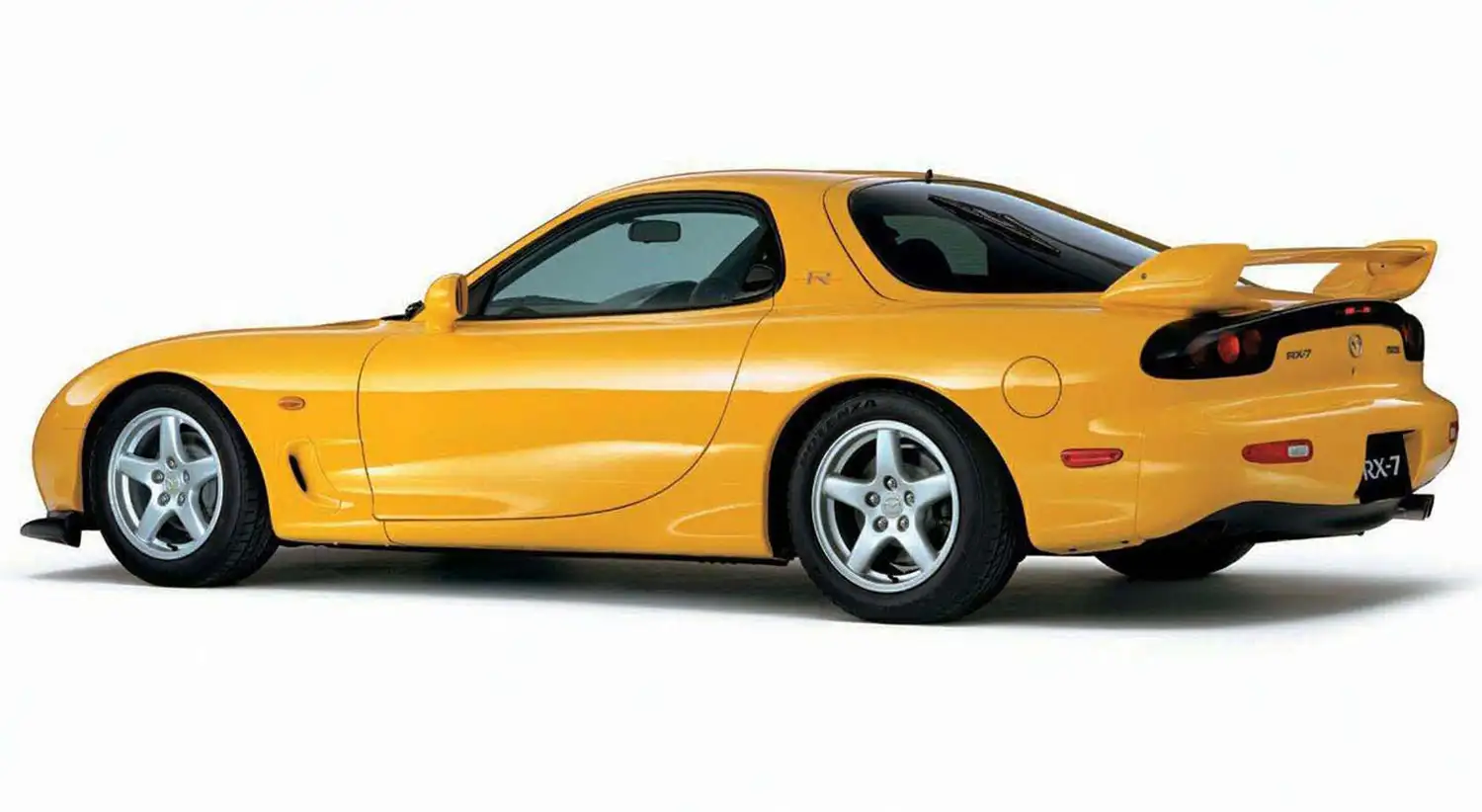
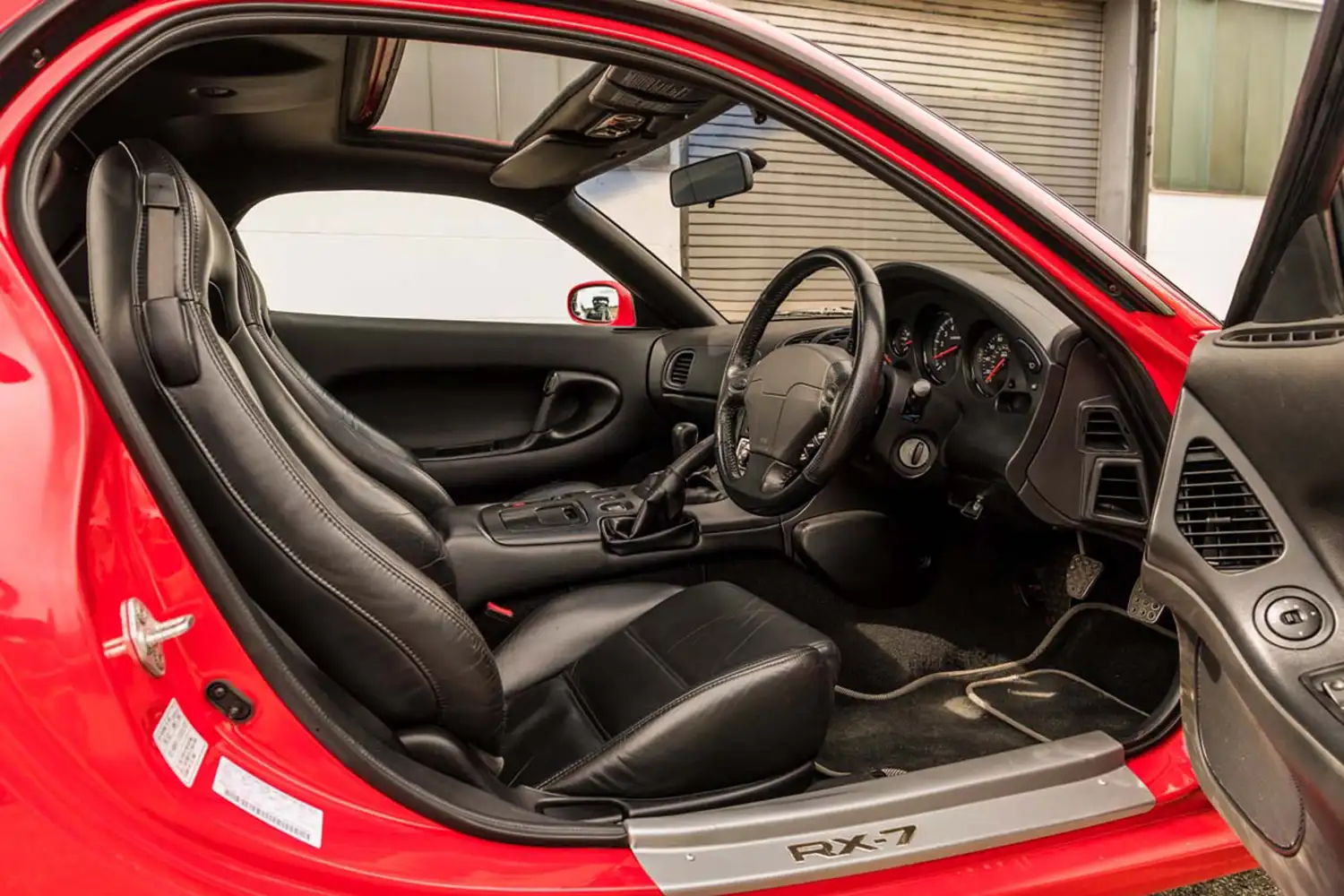
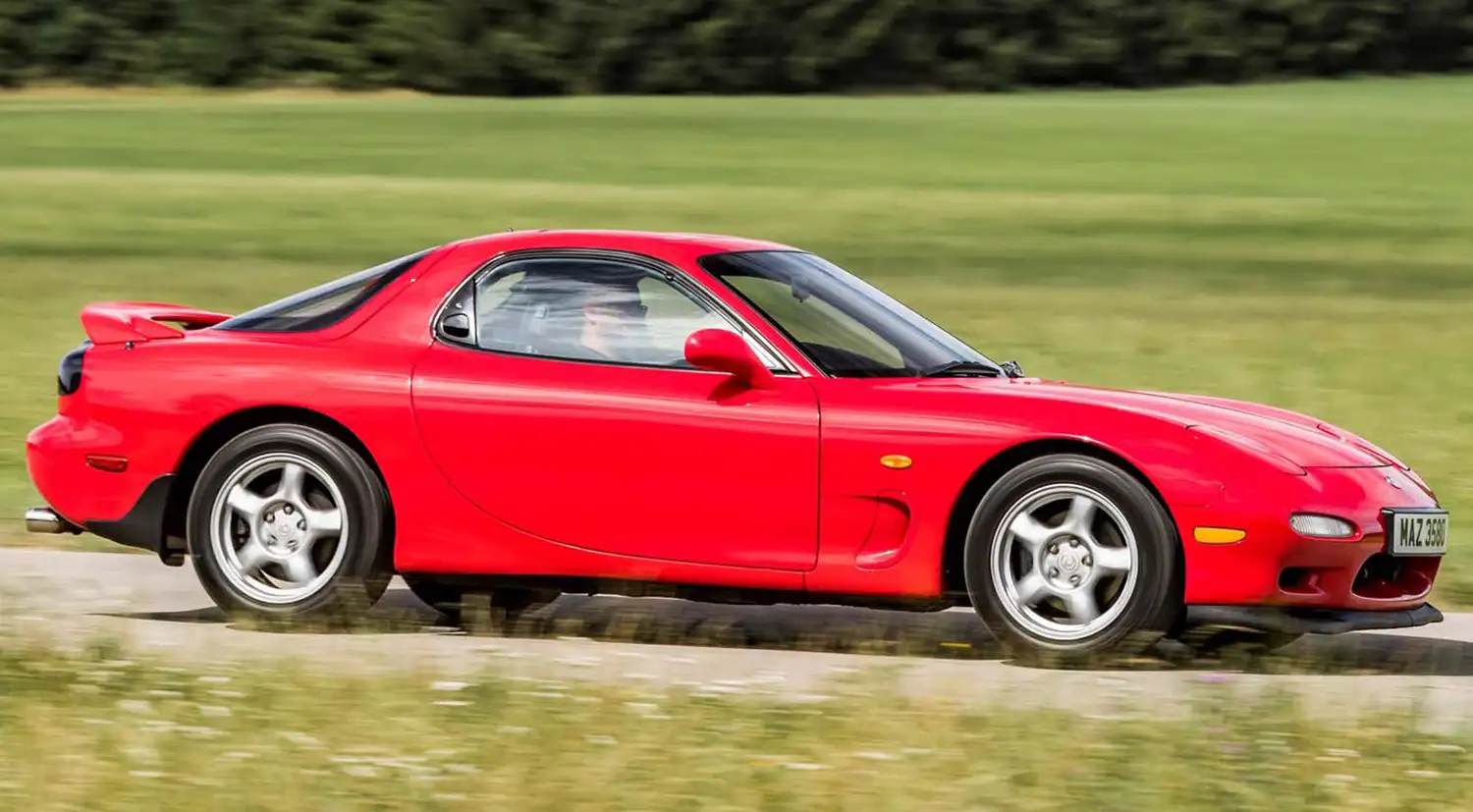
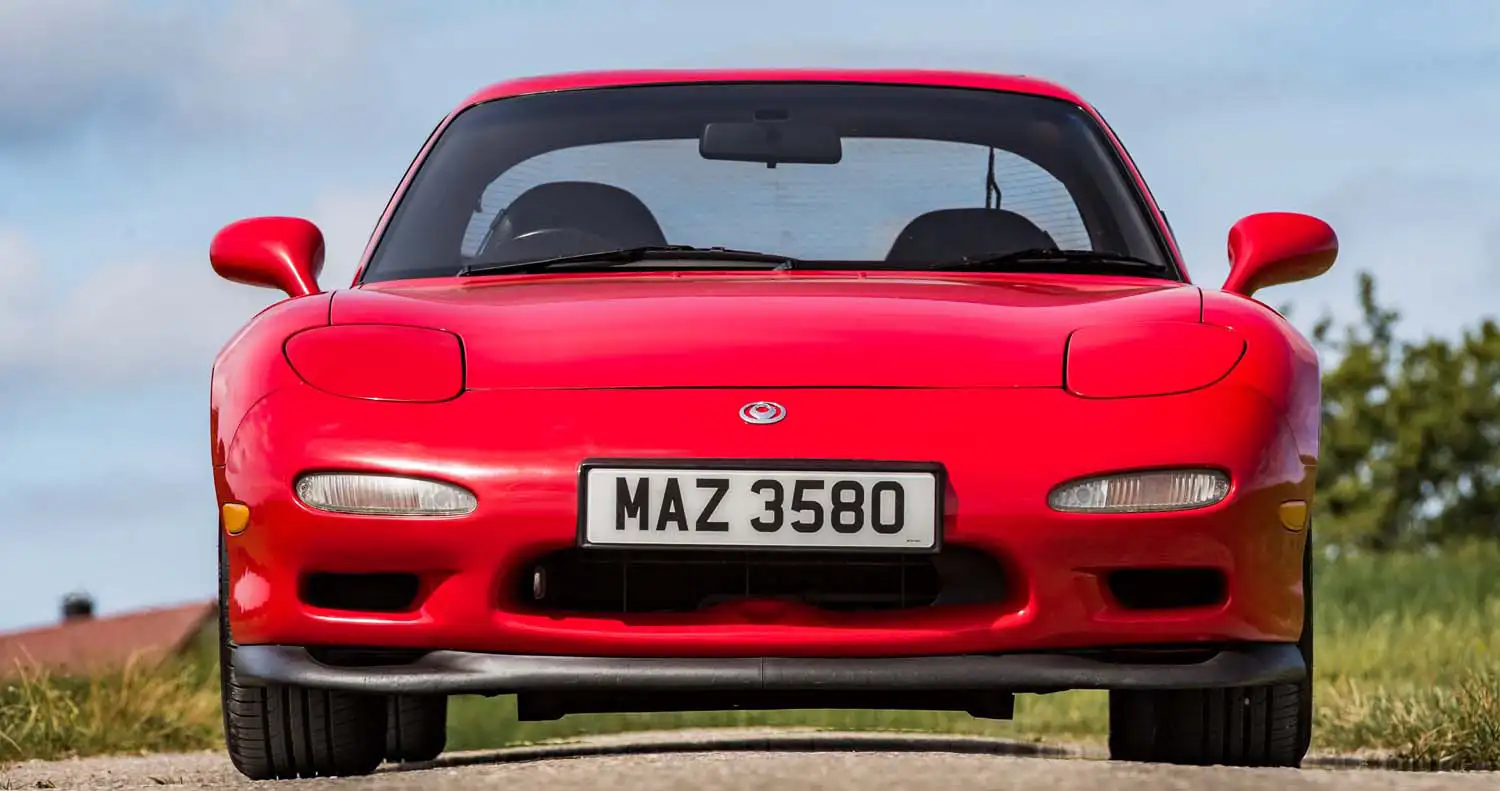
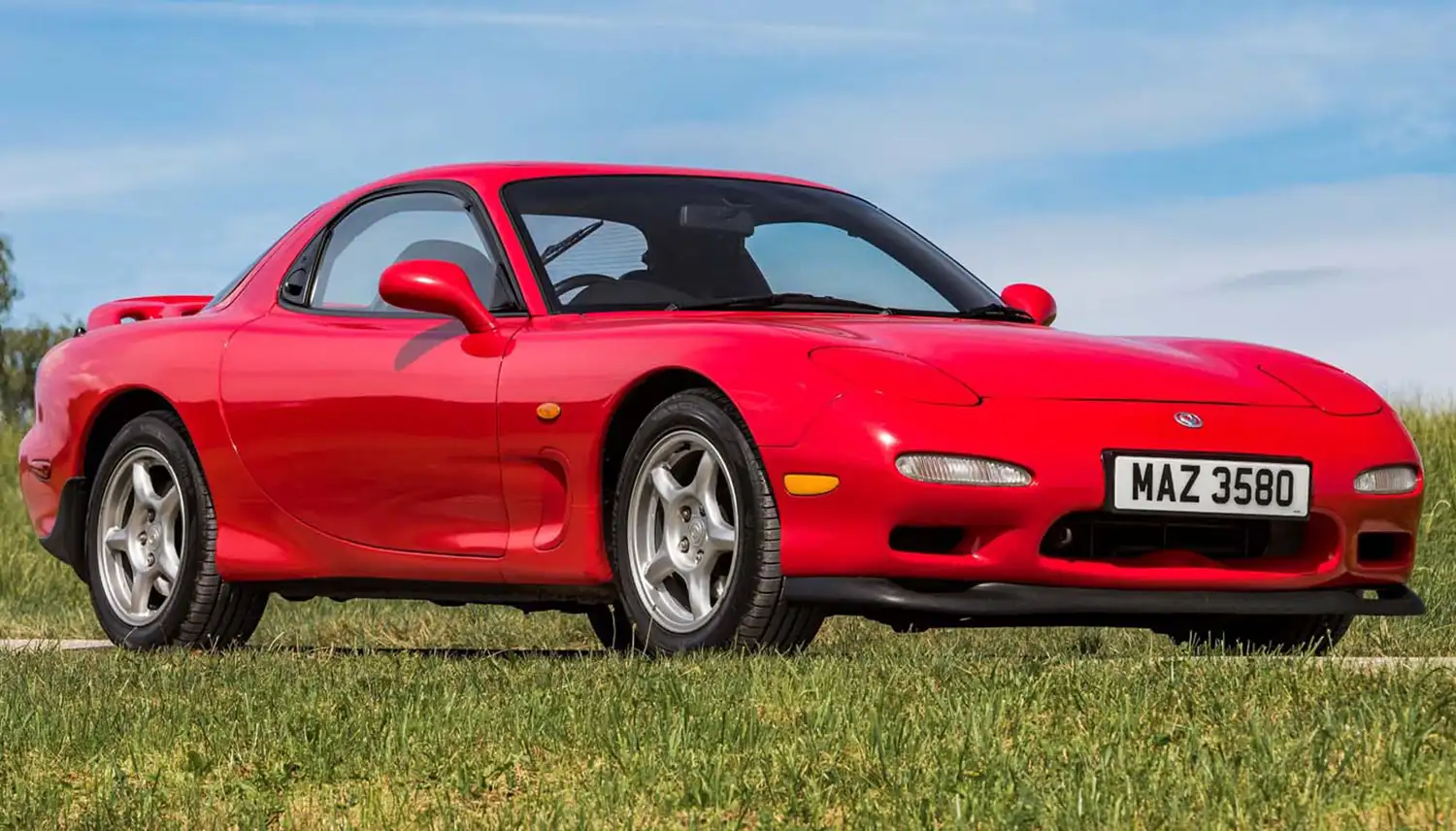
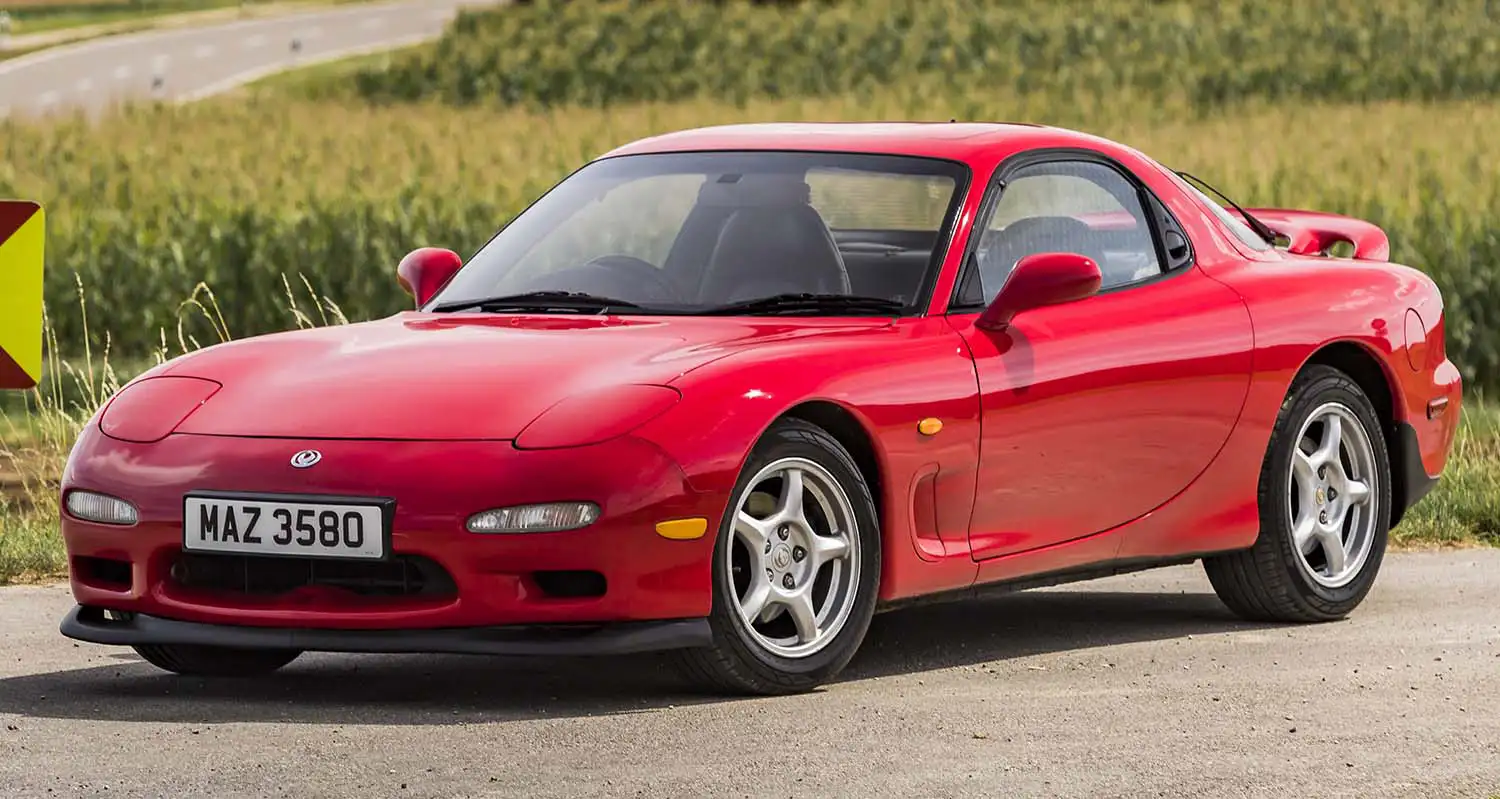
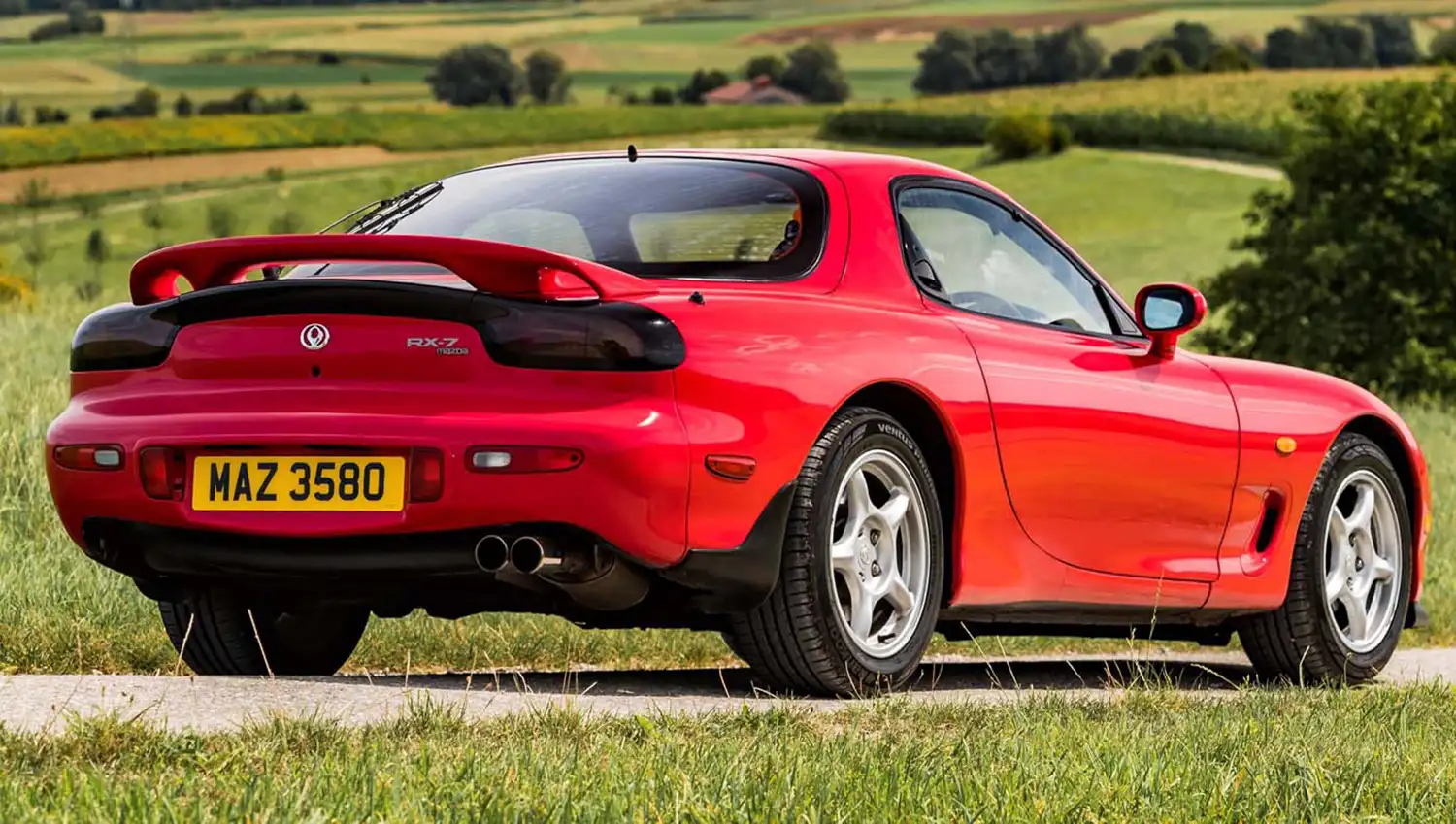
The post Mazda RX-7 (3rd Gen): A Rotary Icon of the 1990s appeared first on EN.WHEELZ.ME.



